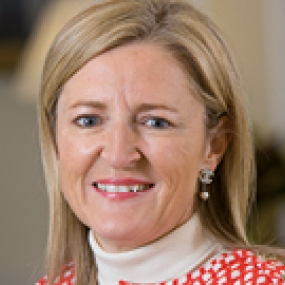Global Partnerships - from planting seeds to budding flowers

Consultant Anaesthetist, RCoA Global Partnerships Chair
The Royal College of Anaesthetists launched its Global Partnerships Strategy in 2016 and upon my election to Council that same year, I was elected Global Partnerships Chair. So much has happened since then, it feels like the seeds we planted then are now beginning to bud.
The strategy highlights the College’s commitment to forging and nurturing relationships with doctors and institutions outside of the UK. We have been unapologetically clear that our international activities will be undertaken in partnership with health education providers. Our first projects following the strategy launch saw us delivering Training the Trainer programmes both in Iceland and Hong Kong. In the latter, we also worked with the Hong Kong College of Anaesthesiologists to develop a competency based anaesthetic curriculum, drawing on our own curriculum development expertise.
We have also worked with the Association of Anaesthetists (the Association) and the World Federation of Societies of Anaesthesiologists (WFSA) to review and re-launch the e-SAFE resource, which provides free access to e-learning content to non-physician anaesthetists in low resource settings. We have also developed the Essential Anaesthesia resource which gives low cost access to e-learning content focused on obstetrics, paediatrics, trauma and pain medicine. We contributed, along with the Association and WFSA to bursaries to allow physician anaesthetists in low resource settings to gain access.
Another goal has been to increase our engagement with our international members. Approximately 10 per cent of our members are based outside of the UK. In 2018 we launched The International Anaesthetist, an e-newsletter sent to our international members. Throughout the year we held a number of online membership engagement sessions to explore how we might better support our international members.
The strategy highlights the College’s commitment to forging and nurturing relationships with doctors and institutions outside of the UK.
With all this new activity, we have not forgotten our more traditional international work. The Medical Training Initiative continues to grow and we are seeing increasing opportunities for UK trainees to undertake placements in low and middle income countries.
Looking forward, we will be holding our Global Anaesthesia: Engaging the Collective event on Friday 22 March. I would encourage you to attend if you are able, as we have excellent speakers lined up including Bruce Biccard who will be speaking about his recent African Surgical Outcomes Study – it is going to be an interesting and inspiring day.
We then embark on our biggest challenge over the next few years. I will travel to Arusha, Tanzania to attend a meeting of the College of Anaesthesiologists of Central, Central and Southern Africa (CANECSA). This is a significant meeting as it will be an opportunity for all constituent countries as well as supporting UK and Irish organisations (including the College of Anaesthesiologists of Ireland, the Association and the WFSA) to meet and agree a project plan to allow the CANECSA to continue its development. Alongside setting up the College institution, there is a need to develop a regionally approved anaesthetic specialty training programme and supporting assessments in order to meet the needs of patients within the region. An estimated 93 per cent of people in Sub-Saharan Africa still do not have access to safe, affordable surgical and anaesthesia care when needed. Life-saving and disability-preventive surgical procedures can only be achieved in conjunction with access to appropriate anaesthesia services. We hope that through a long term collaboration, the College can provide support to allow the institution and anaesthetic workforce to grow and thrive.
If you would like to hear more about our Global Partnerships work, I would encourage you to book onto Anaesthesia 2019 where I will be giving an update. I am pleased to report that we have taken bookings from countries such as Nigeria, Qatar and South Africa, as well as many others. There will be a diverse range of speakers at this flagship event, so do come along if you are available. It’ll be great to see as many of you as possible.
Professor Ellen O'Sullivan
